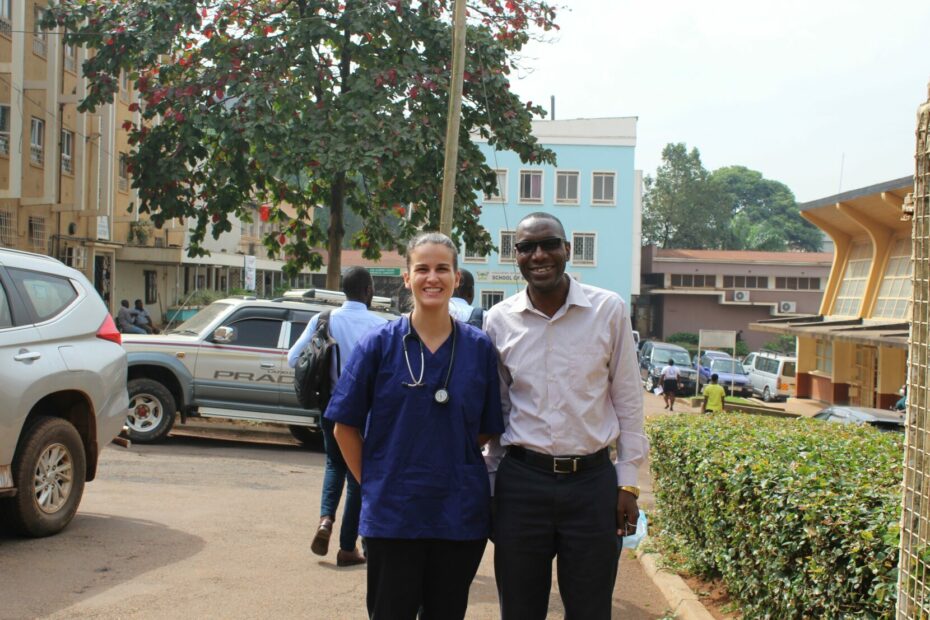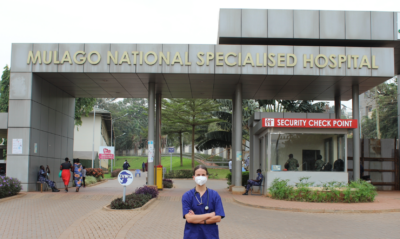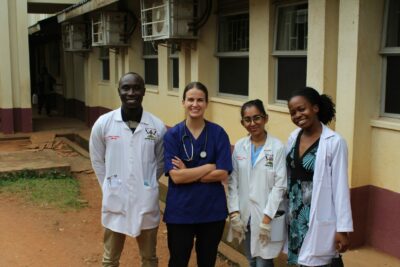

After conducting my medical research assignment on barriers to accessing NCD medication in Nakaseke, rural Uganda, I received a stipend through Balamu to complete an elective clinical rotation. This allowed me to extend my stay in Uganda for four more weeks and rotate at Nakaseke General Hospital and Mulago National Referral Hospital in the Medical Emergency.

After more than two years of online teaching due to the COVID-19 pandemic, I was finally able to return to the hospital as an intern and put my theoretical knowledge into practice. I spent one week as a rural rotation at Nakaseke General Hospital, where I was able to get to know practicing medicine from a lower level of resources. After that, I continued with my rotation at the Medical Emergency at Mulago National Referral Hospital which is not only the teaching hospital of the Makerere University, but also the referral hospital for all lower-level hospitals in the whole country. Thus, the most serious cases were referred to our admissions. So, I was able to collect findings that I have not seen in Germany so far: I palpated my first splenomegaly, saw many patients with HIV/AIDS and its opportunistic diseases, assessed end stage liver disease and intervened in acute conditions such as cerebral infarction, myocardial infarction, embolism and more. One of my highlights was a patient with a kaposi sarcoma, also in Uganda a rare finding in the HIV-positive population.
A great scientific addition, however, was a clinical phenomenon with an unusual symptom complex in an HIV-positive patient. Also, I was able to perform many practical activities on my own for the first time. This included among others my first cardiopulmonary reanimation, lumbar, and pleura punction. In addition to emergency medicine, I gained insights into tropical medicine, too. Every day I was confronted with many patients suffering, for example, from malaria, typhoid fever, sickle cell anemia, and its severe complications. On the ward, I could work independently, take the initial history on
my own, come to a working diagnosis and suggest a treatment plan. Often, I discussed my findings with my fellow medical students and gain further insights into the diseases through peer review.

Through my fellow students, I was also part of the student life in Kampala and made many new friends. I also became more routine and confident in presenting patients to my colleagues. Also, a huge advantage was learning the dosages and administrations of medications.
Inevitably, I had to learn to be a more accurate examiner and to get to my diagnosis largely based on the patient history and findings of the examination, without imaging and often without laboratory parameters. All in all, it has been a great opportunity and addition to my research stay for me to learn routine procedures and treatment concepts of acute conditions in central emergency admission. My elective showed me many new facets of the health care system in Uganda in addition to my impressions from my time at the HIV/AIDS clinic in Luweero three years ago.
The greatest lesson I take home from my elective is to never stop advocating for the welfare of my patients, no matter how hopeless the situation may seem. It is worthy to put some extra effort in a case to get the best out of it for your patient. My elective clinical rotation has allowed me to grow tremendously on a personal and professional level. The extraordinary impressions I was able to gather at Mulago National Referral Hospital have had a great impact on my further training. It is now very clear to me that I would like to specialize in internal medicine, perhaps even nephrology. In addition, I would like to focus in a more sustainable way on global health later.
Extremely grateful for the opportunity, which was given to me, I am very excited about the future and look forward to further collaboration.